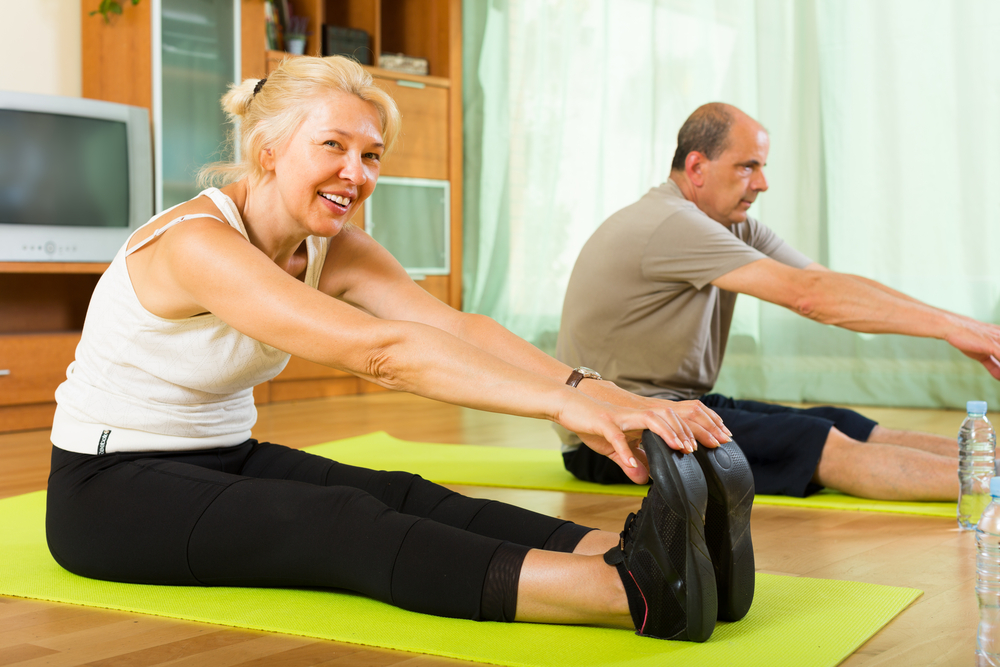MS Patients Speak of Importance of Exercise and Activity to Overall Sense of Well-Being in UK Study
Written by |

People with multiple sclerosis (MS) value exercise and physical activity far beyond the concept of “staying fit,” and consider exercise essential to maintaining a reasonable level of independence and being able to engage in social activities, a small U.K. study based on interviews reports.
The study, “The meaning of exercise and physical activity in community dwelling people with multiple sclerosis,” was published in the journal Disability and Rehabilitation.
Research demonstrates that many MS patients lead sedentary lives, engaging in “low levels of physical activities” despite evidence that such activities can be of benefit, the study notes.
Physical exercise has been shown to be safe and well-tolerated by patients, with the potential t0 ease some disease symptoms and prevent complications, and possibly being neuroprotective.
Nonetheless, “the understanding and meaning of physical activity and exercise in everyday life remains underexplored. This is important as such an understanding may enhance attempts to create opportunities to increase physical activity,” the research team at Brunel University London wrote.
The scientists conducted face-to-face, in-depth, and semi-structured interviews with 16 MS patients (12 women and 4 men, ages 47 to 72), all living in their home (community-dwelling), to find their opinions toward exercise and physical activity and how it impacts their daily life. Interviews were done at places chosen by the participant, typically the home.
Findings showed that “everyday life with a deteriorating condition such as MS results in a multidimensional view of exercise and physical activity,” Andrea Stennett, PhD, the study’s first author, said in a news release.
“Exercise and physical activity is a way of coping with the condition and a key to maintaining their identity beyond their diagnosis – for example, as a mother, grandmother, or breadwinner,” Stennett added.
In the interviews, patients stated that exercise and physical activity were about movement. “Movements, whether structured (exercise) or unstructured (physical activity) were deemed meaningful and relevant for living life with MS. Also, it was the ability to integrate physical activity in everyday life activities that gave it prominence,” the researchers wrote.
Besides supporting a patient’s sense of achievement, both exercise and physical activity were considered to improve muscle strength and physical fitness. People also said they helped to prevent physical deterioration and loss of mobility.
Participants also mentioned the social benefits and rewards that exercise and physical activity provided. Group exercise classes, for instance, were found to not only have physical benefits but were a way of experiencing greater peer support, acceptance, and camaraderie.
MS patients also said that being physically active enabled them to better connect with others socially and with their surroundings.
A sense of loss was attributed to changes in balance and priorities, especially if the person enjoyed physical activity in the past. “In the past I use to love walking and would walk for hours and this is a great loss to me. I realize I can’t really do the walking I use to do,” said Bev, 55, a secondary progressive MS (SPMS) patient described in the study as “moderately affected” in her ability to exercise or be physically active, and “mobile with aid.”
Despite this sense of loss, exercise and physical activity are used as a way of coping with MS by providing patients with structure and a sense of being normal.
Because of the disease-associated fatigue, patients tend to prioritize their “what to do list” by what they like the most, as well as their energy reserve.
“My focus is getting all the stuff done for the family, and then any extra energy I can use on physio,” said Jill, 47, an SPMS patient seen by researchers to be “severely affected” in her ability to exercise or engage in physical activity. “It’s extremely frustrating to get to the end of the day and think I just haven’t got the energy.”
Overall, the team researchers that “the meanings people with multiple sclerosis ascribe to exercise and physical activity extended beyond movement, reflecting how they lived with a variable neurological condition.”
They suggest that health professionals “consider the impact personal and contextual factors have on influencing decisions around exercise and physical activity in community dwelling people with multiple sclerosis,” in order to better help these patients and to create opportunities that might increase their physical activity.
Health professionals should realize that MS patients not only engage in exercise and physical activity to manage their disease symptoms, “but also as a way to connect with others and cope with the variability of the condition,” the study concluded.





